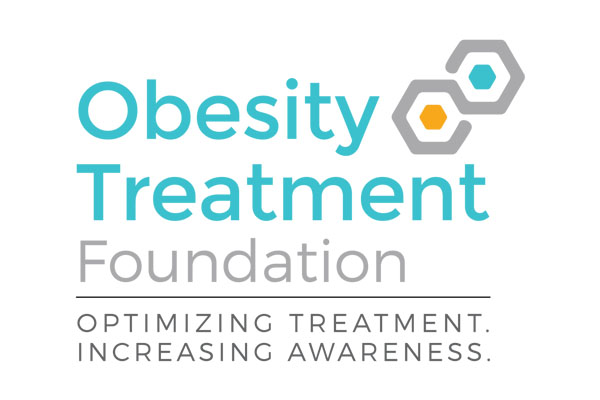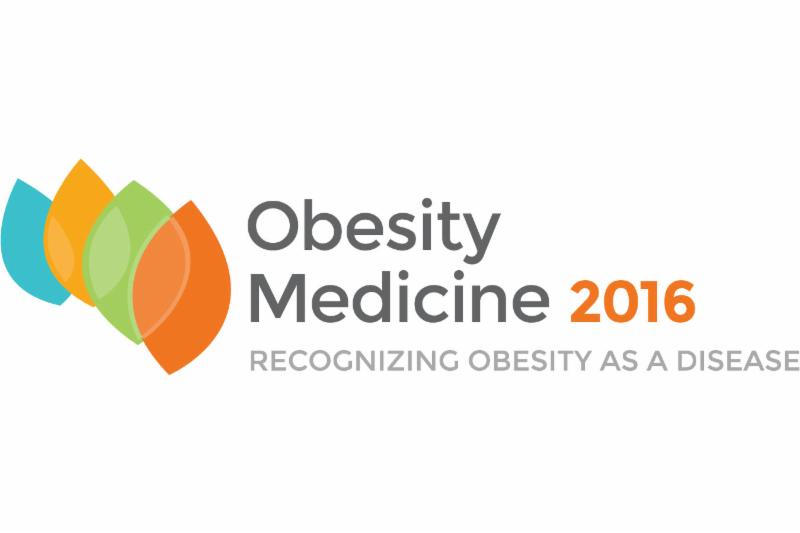Introducing the Obesity Medicine Academy
We're making it easier than ever to further your clinical obesity education. At Obesity Medicine 2016, we're debuting the Obesity Medicine Academy, our new online learning platform.
The Obesity Medicine Academy will allow you to easily find those must-see presentations you've discussed with your colleagues; browse presentations by topic, title, or speaker; watch presentations online or download the recordings to your computer or mobile device; take the quiz and claim your CME/CE credit -- all at home, online, and at your convenience!
Watch for more information about the Obesity Medicine Academy coming next week!
|
 Explore San Francisco when you attend Obesity Medicine 2016
|
 Happy Doctors' Day!
Tomorrow is National Doctors' Day, which recognizes physicians for everything they do to care for and improve the lives of their patients. Here at OMA, we celebrate National Doctors' Day not only for our physician members, but for every health care professional who dedicates their career to treating, reversing, and preventing obesity. We thank you for all you do!
|
Obesity Treatment Foundation
|
 We need your help! We need your help!
We need a few more responses to reach our goal! Please complete this short four-question survey to help us determine your level of interest in an obesity medicine data registry. The obesity medicine data registry is a platform that will enable obesity medicine specialists to collectively provide real-world evidence of the effectiveness of medical obesity treatment. It will create periodic reports for your clinic, which allows you to compare your data to the data of clinics employing similar or dissimilar methods. Please complete the survey by March 30.
|
 Submit your letter of intent for a $15,000 research grant Submit your letter of intent for a $15,000 research grant
The Obesity Treatment Foundation (OTF) will offer one research grant this year in the amount of $15,000. This grant will assist an obesity medicine specialist in engaging in clinical research focused on determining effective obesity treatment approaches. OTF is now accepting letters of intent from clinicians interested in applying for this grant. Letters of intent are due by May 13, and selected applicants will be invited to submit full proposals by June 6. Carefully review the submission instructions before submitting your letter of intent. Questions? Contact OTF at stacy@obesitytreatmentfoundation.org.
|
 |
A meta-analysis of the relationship between brain dopamine receptors and obesity: A matter of changes in behavior rather than food addiction?
Benton, D., and Young, H. A. International Journal of Obesity, 2016.
In Reward Deficiency Syndrome, drugs are purported to stimulate the reward mechanisms in the brain so intensely that, to compensate, the amount of dopamine D2 receptors (DD2R) decreases. This results in a need for increased intake to experience the same degree of reward. Without the increased intake, people will experience cravings and withdrawal symptoms. A theory exists that food addiction decreases DD2R in a similar way as drugs of abuse. A meta-analysis was conducted to examine the association between body mass index (BMI) and the Taq1A polymorphism, given that the A1 allele is associated with a 30-40% lower number of DD2R and is a risk factor for drug addiction. The hypothesis stated that if a lower density of DD2R is indicative of physical addiction, then if food addiction occurs, those with the A1 allele should have a higher BMI. The meta-analysis compared those with the A1 allele (A1/A1 and A1/A2) to those without the A1 allele (A2/A2) and found no difference in BMI. The authors concluded that there was no support for a reward deficiency theory of food addiction. However, the authors noted that several reports exist showing that those with the A1 allele are less likely to benefit from a weight-loss intervention, which they attributed to a reflection of increased impulsivity. View article
|
|
|
|
Executive Director
Sponsorships and Exhibits Manager
Operations Manager
Education Coordinator
Communication Manager
Executive Director of the Obesity Treatment Foundation
|
|
101 University Blvd.,
Suite 330
Denver, CO 80206
|
|
|
A healthy gastrointestinal microbiome is dependent on dietary diversity
Heiman, M. L., and Greenway, F. L. Molecular Metabolism, 2016.
Dietary diversity has been declining over the past 50 years, likely due to economic pressures for greater food production to support a growing world population. This decreased agrobiodiversity may lead to a less diverse gut microbiome. This review article explores dietary choices that make the microbiome more adaptable to perturbations and potentially better able to combat obesity. The authors suggest that in the future, someone seeking treatment for obesity may be asked about dietary preferences and to present a stool specimen. Obesity treatment might begin with a specific dietary plan to widen that person's microbiome as a way to improve the likelihood of success in obesity treatment. View article
|
What nutritional physiology tells us about diet, sugar, and obesity
Tappy, L. International Journal of Obesity, 2016.
The concept of fructose toxicity is debatable. In this review, the author proposes that even though sugar is a non-essential nutrient, it does not mean that sugar has no beneficial effect. He also argues that alterations in blood triglyceride concentration and hepatic glucose production within the normal range may simply reflect adaptations to a fructose-rich diet rather than early markers of diseases. The author suggests that overfeeding is a normal physiological response to an energy-dense, palatable nutrient rather than the consequence of "leptin resistance." This review suggests that the role of biological regulations and gene-related heredity may be overemphasized when assessing the effects of fructose and the determinants of obesity in general. View article
|
 |

Obesity Medicine 2016
We're off to San Francisco next week! Will you be there, learning about treating patients with obesity from leading experts in the field and taking advantage of your proximity to hundreds of obesity medicine clinicians in one place? Register now to ensure you don't miss out on what promises to be an unforgettable event. |
Review Course for the ABOM Exam
13.25 CME/CE | April 6-7
Helps prepare those planning to take the American Board of Obesity Medicine (ABOM) certification exam.
| Practice Management Essentials
6.5 CME/CE | April 6
Explains the best business practices for running an obesity medicine clinic, from setting up a practice to boosting patient retention.
|
|
Nutrition Course
6.75 CME/CE | April 7
Outlines the latest evidence-based findings about nutrition and helps you select appropriate nutrition plans for your patients.
| Spring Obesity Summit
17.25 CME/CE | April 8-10
Addresses topics related to current and emerging research, evidence-based treatment approaches, technologies, and practical methods used by obesity medicine clinicians.
|
|
|
*The Review Course for the ABOM Exam runs concurrently with Practice Management Essentials on Wednesday and the Nutrition Course on Thursday. Registration for the Review Course includes two days of class time, and switching between courses is not allowed.
|
|
|
|
The Obesity Medicine Association and the Obesity Treatment Foundation thank our 2016 Corporate Advisory Council members for their continuous support.
|
© 2016 Obesity Medicine Association. All rights reserved. Materials may not be reproduced, redistributed or translated without written permission. Advertising disclaimer: Under a policy approved by the OMA executive committee and exhibitor/advertiser review committee, commercial companies may apply to advertise in OMA publications. Approval does not imply endorsement or official recognition of particular products or services.
|
|
|
|